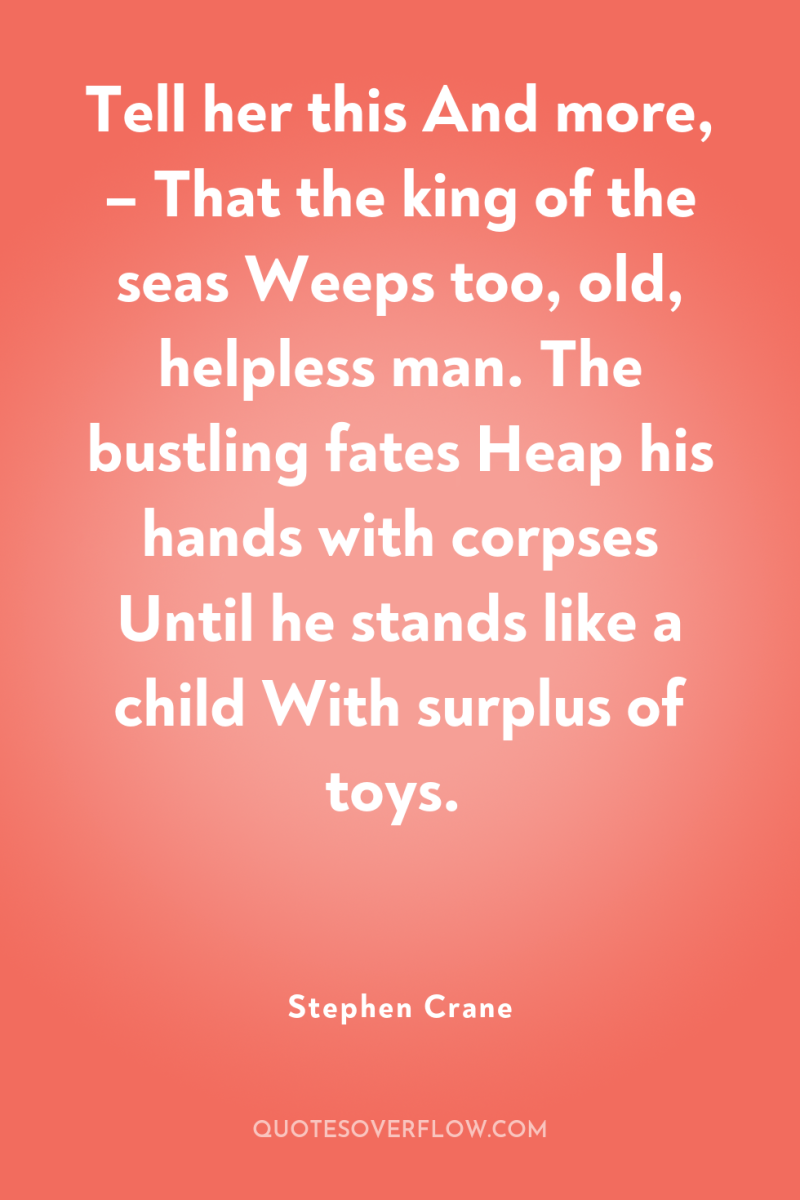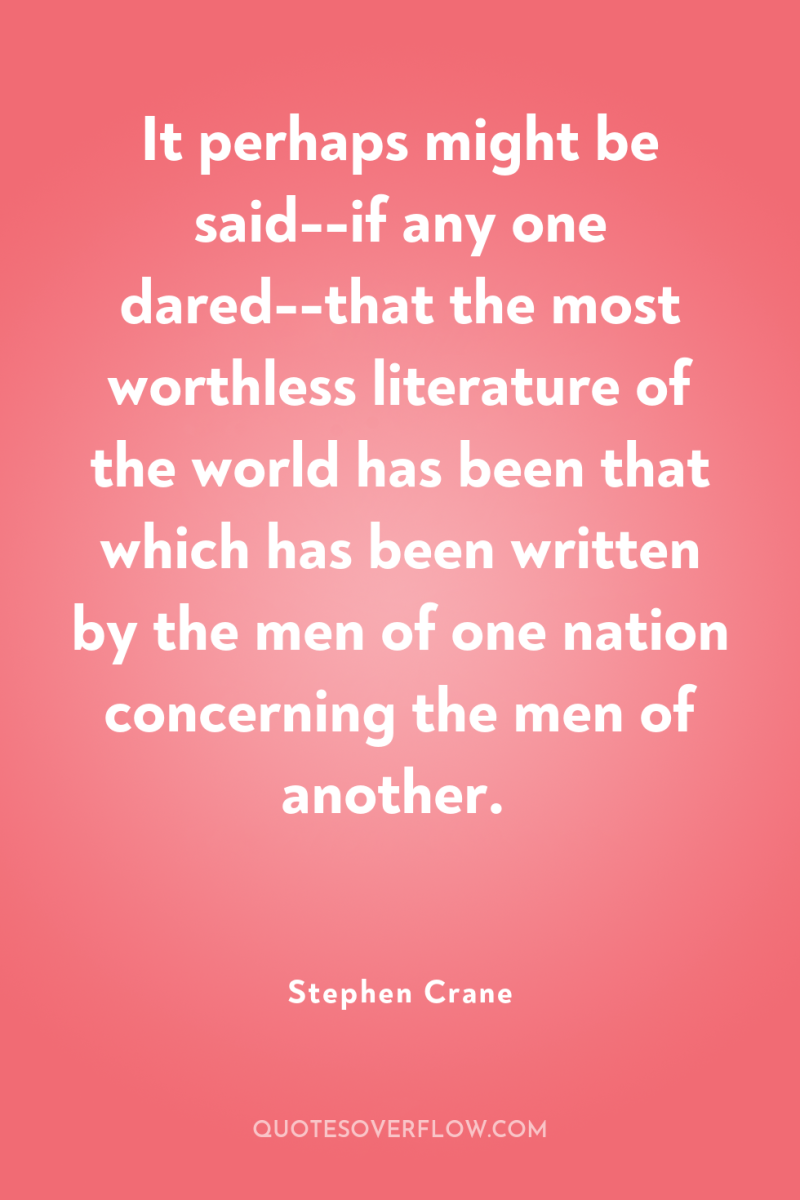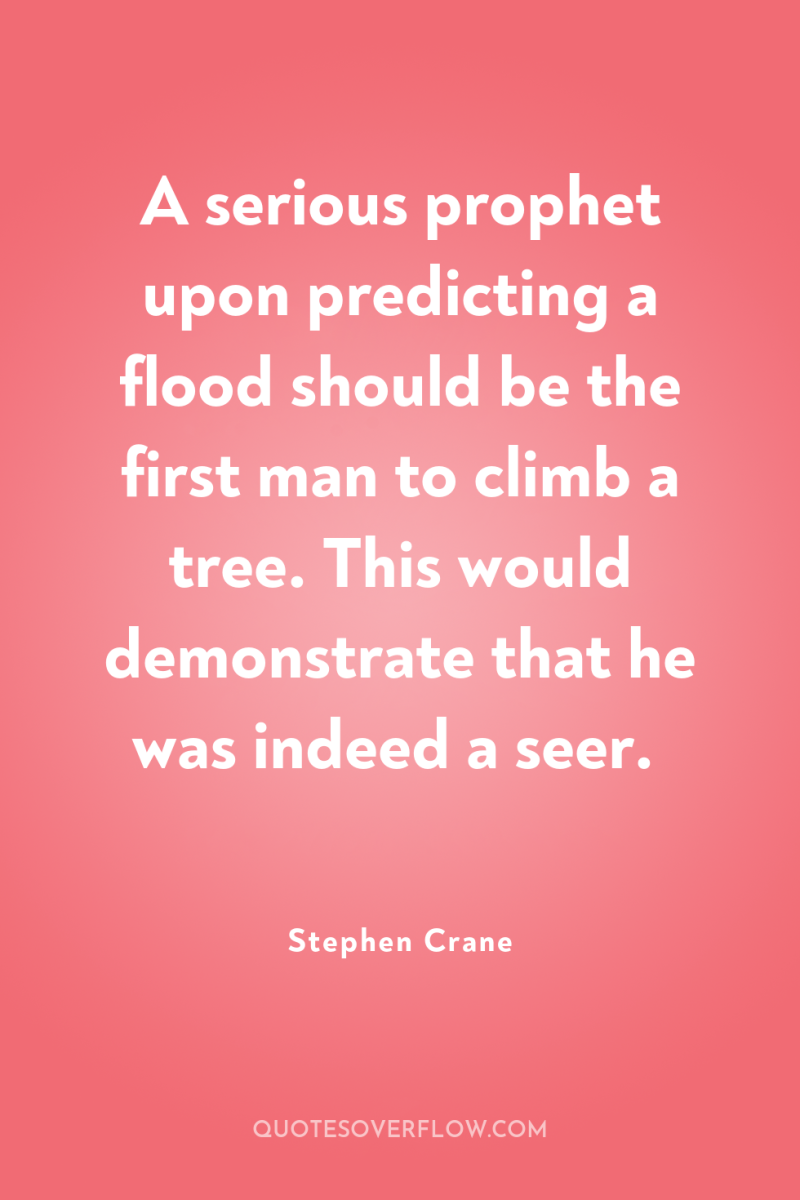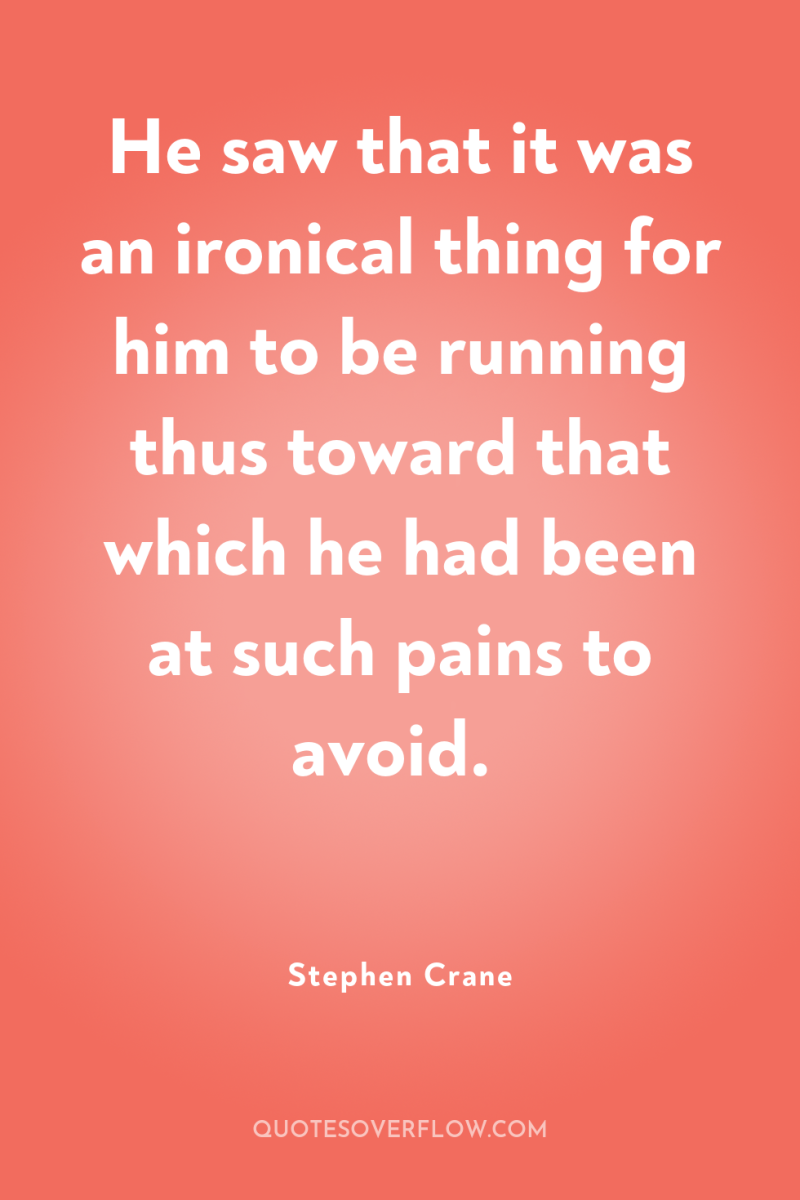1
Two or three angels Came near to the earth. They saw a fat church. Little black streams of people Came and went in continually. And the angels were puzzled To know why the people went thus, And why they stayed so long within.Stephen Crane

2
When the suicide arrived at the sky, the people there asked him: "Why?" He replied: "Because no one admired me.Stephen Crane

3
Tell her this And more, – That the king of the seas Weeps too, old, helpless man. The bustling fates Heap his hands with corpses Until he stands like a child With surplus of toys.Stephen Crane

4
It perhaps might be said--if any one dared--that the most worthless literature of the world has been that which has been written by the men of one nation concerning the men of another.Stephen Crane

5
A serious prophet upon predicting a flood should be the first man to climb a tree. This would demonstrate that he was indeed a seer.Stephen Crane
6
If I am going to be drowned–if I am going to be drowned–if I am going to be drowned, why, in the name of the seven mad gods who rule the sea, was I allowed to come thus far and contemplate sand and trees?Stephen Crane
7
Do not weep, maiden, for war is kind. Because your lover threw wild hands toward the sky And the affrighted steed ran on alone, Do not weep. War is kind. Hoarse, booming drums of the regiment, Little souls who thirst for fight, These men were born to drill and die. The unexplained glory flies above them, Great is the battle-god, great, and his kingdom -A field where a thousand corpses lie. Do not weep, babe, for war is kind.Stephen Crane

8
He saw that it was an ironical thing for him to be running thus toward that which he had been at such pains to avoid.Stephen Crane
9
These men were born to drill and die.      Point for them the virtue of the slaughter,       Make plain to them the excellence of killing      And a field where a thousand corpses lie.Stephen Crane
10
But as the girl timidly accosted him, he gave a convulsive movement and saved hisrespectability by a vigorous side-step. He did not risk it to save a soul. For how was he toknow that there was a soul before him that needed saving?Stephen Crane
11
This poor gambler isn’t even a noun. He is kind of an adverb.Stephen Crane
12
Every sin is the result of a colaborationStephen Crane
13
A man with a full stomach and the respect of his fellows had no business to scold about anything that he might think to be wrong in the ways of the universe, or even with the ways of society. Let the unfortunates rail; the others may play marbles.Stephen Crane
14
The moon had been lighted and was hung in a treetop.Stephen Crane
15
It appeared that the swift wings of their desires would have shattered against the iron gates of the impossible.Stephen Crane
16
Camp fires, like red, peculiar blossoms, dotted the night.Stephen Crane
17
A learned man came to me once. He said, "I know the way, -- come." And I was overjoyed at this. Together we hastened. Soon, too soon, were we Where my eyes were useless, And I knew not the ways of my feet. I clung to the hand of my friend; But at last he cried, "I am lost.Stephen Crane
18
The maddened four men followed frantically, for it is better to be in the presence of the awful than only within hearing. ("The Black Dog")Stephen Crane
19
He did not consider public opinion to be accurate at long range.Stephen Crane
20
When the prophet, a complacent fat man, Arrived at the mountain-top He cried: "Woe to my knowledge! I intended to see good white lands And bad black lands– But the scene is grey.Stephen Crane
21
It was wrong to do this, " said the angel." You should live like a flower, Holding malice like a puppy, Waging war like a lambkin."" Not so, " quoth the man Who had no fear of spirits;" It is only wrong for angels Who can live like the flowers, Holding malice like the puppies, Waging war like the lambkins.Stephen Crane
22
It is perhaps, plausible that a man in this situation, impressed with the unconcern of the universe, should see the innumerable flaws of his life and have them taste wickedly in his mind and wish for another chance.Stephen Crane
23
Sometimes, the most profound of awakenings come wrapped in the quietest of moments.Stephen Crane
24
When it occurs to a man that nature does not regard him as important, and that she feels she would not maim the universe by disposing of him, he at first wishes to throw bricks at the temple, and he hates deeply the fact that there are no bricks and no temples.Stephen Crane
25
The injured captain, lying in the bow, was at this time buried in that profound dejection and indifference which comes, temporarily at least, toeven the bravest and most enduring when, willy nilly, the firm fails, the army loses, the ship goes down.Stephen Crane
26
His face had been twisted into an expression of every agony he had imagined for his friend.Stephen Crane
27
Nevertheless, he had, on a certain star-lit evening, said wonderingly and quite reverently: "Deh moon looks like hell, don't it?Stephen Crane
28
None of them knew the color of the sky.Stephen Crane
29
There was a man with tongue of wood Who essayed to sing, And in truth it was lamentable. But there was one who heard The clip-clapper of this tongue of wood And knew what the man Wished to sing, And with that the singer was content.Stephen Crane